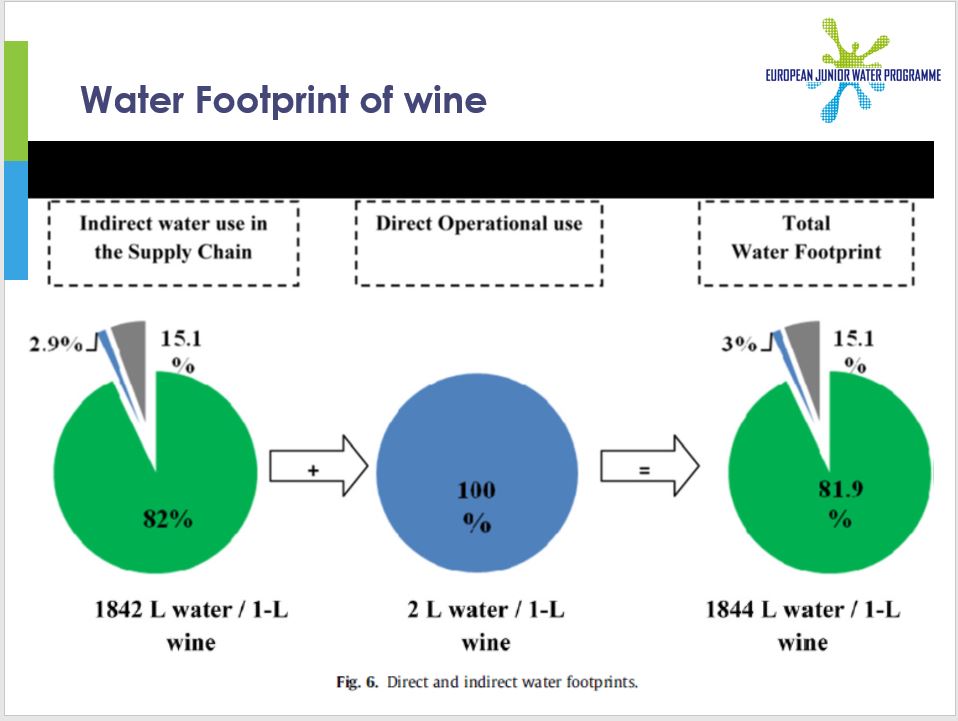During the second part of the European Junior Water Programme, three young professionals from different regions of Europe investigated the sustainability of a selection of wine regions by using a simplified Water Footprint Assessment methodology. They looked at differences between water abundant and water scarce conditions, biological and conventional wine production. The purpose was to come up with a simplified framework for both wine traders and wine consumers to understand the water footprint of wines and to raise awareness among producers on improving the water sustainability of their production.
Sustainable wine in Europe is in general synonymous with organic wine. For a wine to be labeled organic, it needs to comply with certain practices in the growing and processing of the grapes. These can include the use of organic fertilizers, reducing energy and water use, or entirely excluding chemical additives. However, organic wines can perform poorer in a sustainability assessment if grown in a water scarce area, than conventional wines grown in a water abundant area. There has been some research carried out on the Water Footprint of wine production, among others for cases in Italy, Romania and Chile, but there is no information available at EU level on water use in wine production. Consumers can easily discern between a CO2 intensive wine by looking at the country of provenance – the closer to home the better. But there is no simple indication available to consumers to indicate if a wine is also water – sustainable.
For this project, the EJWP team contacted several European wine producers from different regions with a questionnaire. The findings from the research indicate that even though the respondents experienced draught or heavy rain periods that led to a reduction in production from 30% to 70%, very few implement water management practices at grape production level. At wine production level, the practices vary depending on country and size of the vineyard. Even though the number of respondents was insufficient to draw definite conclusions for the European complexity of the sector, our results indicate that water is not a focus point for wine producers even though they do experience loss of production due to draught and lack of water management practices. A further in depth study is required to achieve a clearer image of water practices in the wine producing sector.
The results of the project were presented in Brescia, Italy, on the 9th of December, at CSMT technological park, during the third week of the European Junior Water Programme.

